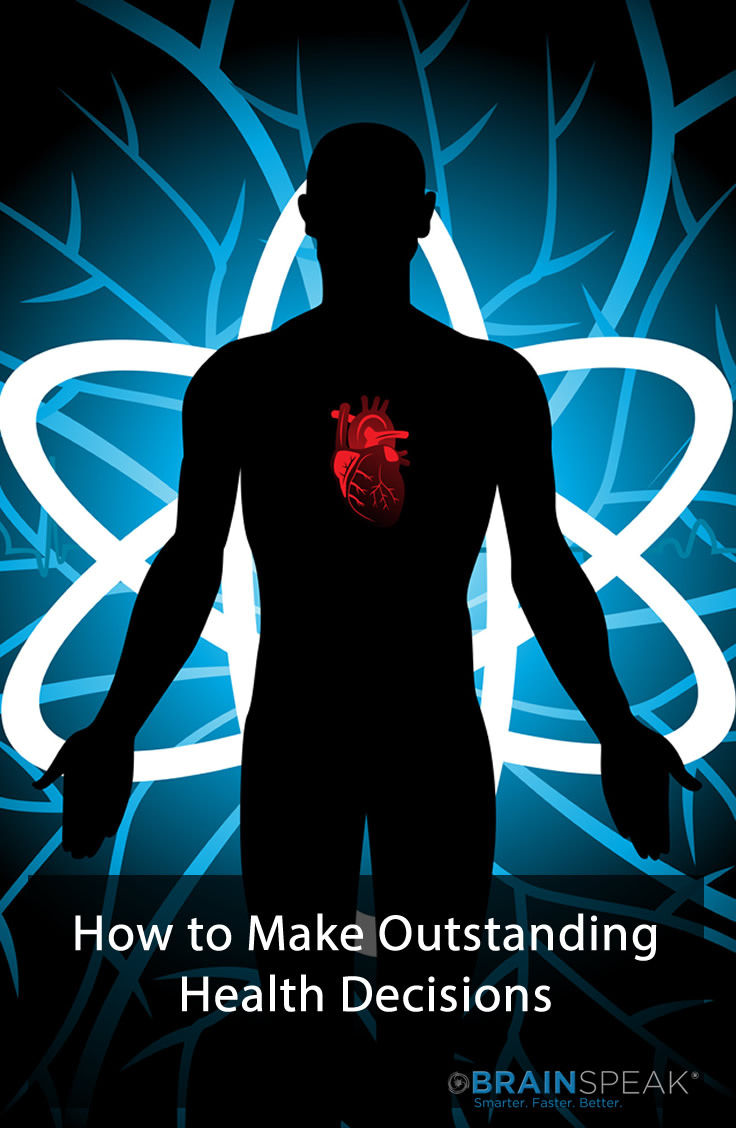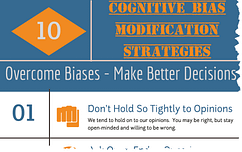by Julia Scalise, DN, PhD
Information overload on health-related treatments, modalities, products, and programs increases daily. Articles to read, programs to review, information to consider, and products to try inundate us daily.
It is harder and harder to discern that which is beneficial and that which may be detrimental. There is a lot of good information out there, but also a lot useless snake oil. And more and more people make questionable decisions due to lack of time to fully investigate or understand the data.
Our brains look for an easier way to find a solution for our health issue so that we can move on to the next thing. But is this the best way to make these important decisions when it impacts our health and well-being?
What is Cognitive Bias?
We are on autopilot most of the time, and that is when our cognitive biases influence our decisions.
If you are uncertain what cognitive bias is, here is how chegg.com describes it:
A cognitive bias is a mistake in reasoning, evaluating, remembering, or other cognitive process, often occurring as a result of holding onto one's preferences and beliefs regardless of contrary information. Psychologists study cognitive biases as they relate to memory, reasoning, and decision-making. Many kinds of cognitive biases exist. For example, a confirmation bias is the tendency to seek only information that matches what one already believes. Memory biases influence what and how easily one remembers.
You can also find out more about cognitive biases here: https://brainspeak.com/is-the-way-you-think-causing-you-to-be-manipulated/
This way of thinking applies to all areas of our lives: spiritual beliefs, politics, social interactions, and lifestyle. It is the fiction by which we operate our lives versus independent facts. I am not judging, just stating that we tend to align with certain ideas that suit us and often dismiss those that differ from our own. And we do this with health information also.
Ask Questions about Your Health Decisions
Ask yourself a few questions:
- Do you accept or dismiss health information solely on your advocated beliefs, or personal experience? Or based on someone you know, peer acceptance, or cultural background?
- Do you look for information that supports your (or your friend's) beliefs, experiences, or cultural background?
- Do you dismiss or promote information solely because of your beliefs, experiences, peer acceptance or cultural background? Or do you look for evidence that supports the new discovery or supports the long standing status quo?
- Do you embrace ALL new or alternative modalities or treatments or reject them all, regardless of evidence?
Over the years of my practice, I've realized there is not one sole cure, treatment, or program that works for everyone 100% of the time for all health issues. I wish there were. But I have found a way to help sift through the overwhelming information bombarding you when trying to make health-related decisions.
4 Steps to Making Better Health Decisions
1. Do No Harm
As Hippocrates stated “First do no harm.” Regarding what you are about to try to do, or refuse to do, make sure it will not make matters worse for you. Whether it’s a minor health issue or a major one, other than trauma or crisis care, make choices that have no potential to do more harm than good.
Just because something worked for you, it may not work for everyone. Likewise, if something did not work for someone else, it does not mean it won’t work for you.
2. Try and Assess
Once you have ascertained that your choice will not make matters worse for you, try it and assess your response. Pick a reasonable time frame based on your unique situation. Do you feel better or worse? Is your health issue improving or worsening?
3. Keep Your Health Team Informed
Always inform your health team of your decisions (traditional and alternative practitioners). If they are opposed to your choices, find out why. If it is a choice that requires expert guidance, find those experts and work with them.
4. Trust Your Intuition
If you feel most aligned with new vs. old treatments or vice versa, it’s best to follow your own feelings. Even if it is different from your usual way of dealing with health issues.
Be open to possibilities and the best probabilities for your conditions. By this I mean, if you are one who has always felt standard health care is best but feel a pull towards an alternative therapy, don’t immediately dismiss it.
Likewise, if you are more in alignment with alternative therapies, but feel that standard medical care is best for this situation, don’t dismiss that either. Investigate to find the best treatment(s) for your highest potential of health and healing, whether standard medical care, alternative, or a combination of both.
Both personally and as a practitioner, I no longer embrace one school of thought only and completely dismiss another. I have not done so for a long time. I work to discern what is best for this situation, considering these circumstances and health status. Letting your cognitive biases take over is not in your best interest when it comes to health decisions.
Wishing you health, your highest level of discernment when making health and treatment choices, and living your best life.
Want some quick ways to help de-bias your brain? Click here to download our "10 Cognitive Bias Modification Strategies for Decision-Making."
YOUR TAKEAWAY
Because we have so much information to process, we use thinking shortcuts called Cognitive Biases. These sometimes result in bad decisions, including our health choices. To make better decisions, ask yourself questions to see if you are being open minded about your options.
Then follow these 4 steps to be sure your health decisions are sound.
- Do No Harm - make sure there isn't a chance that your choice will make the situation worse.
- Try and Assess - give yourself a trial period to see if your choice makes a difference
- Keep Your Health Team Informed - make sure what you are trying works with other aspects of your plan
- Trust Your Intuition - Be open-minded to new ideas, and if you feel drawn to an option, pay particular attention to that


